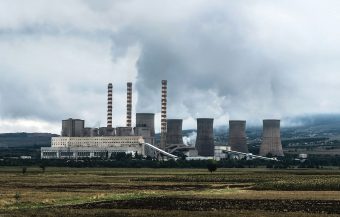
In Western Balkan countries, thermal power plants are the leading electricity producers, accounting for about 54 per cent of the total energy production. At the same time, thermal power plants are the main source of NOX gas emissions, which account for about 80 per cent of the total gas emissions from coal combustion. The presence of these oxides in the atmosphere is very unfavorable.
They are responsible for the appearance of smog and acid rain, and it has been confirmed that they cause the degradation of the respiratory functions of children and people with impaired health, with an emphasis on people who have asthma. Also, there are convincing arguments that the presence of these gases affects the increase in diabetes among vulnerable age groups, as well as the percentage of premature births and reduced birth weight of babies. The latest research shows that nitrogen oxides contribute to increased mortality due to cardiovascular diseases.
The NOXTROT project, under the leadership of full professor Željko Đurović from the Faculty of Electrical Engineering, University of Belgrade, focuses on solving the air pollution problem with nitrogen oxides (NOX) from thermal power plants. Nitrogen and oxygen are natural gases that do not react with each other under normal conditions. Their reaction requires a high energy level.
IN FOCUS:
- THE INTELLIGENCE OF THE YOUTH IN SERBIA ILLUMINATES THE GREEN PATH OF SUSTAINABLE DEVELOPMENT OF LOCAL AREAS
- NEW MATERIALS FOR A NEW AGE
- PROCREDIT BANK – THE NEW FACE OF DIGITIZATION
However, due to the presence of volatile organic compounds found in fossil fuels at high temperatures, which are common during the combustion of these fuels in the boilers of thermal power plants, a reaction occurs that results in the appearance of nitrogen oxide gases NO and NO2. These gases are called NOX and represent a serious environmental problem.
Great attention of the NOXTROT project, which is financed by the RS Science Fund as part of the Green Program of Cooperation between Science and Industry, is devoted to the reconstruction of thermal power plants in Serbia to reduce the concentration of nitrogen oxides in flue gases as one of the products of coal combustion. This is precisely what was considered during the reconstruction of certain blocks of thermal power plants in Serbia. However, the coal supply to the thermal power plants Nikola Tesla, TENT A and TENT B is facing severe problems. Namely, it is not uncommon for lignite, whose caloric value is significantly below the expected values, to be delivered from Kolubara mines for days.
Author: NOXTROT project team
Read the story in the new issue of the Energy portal Magazine SUSTAINABLE ARCHITECTURE AND FINANCING OF GREEN CONSTRUCTIO.

